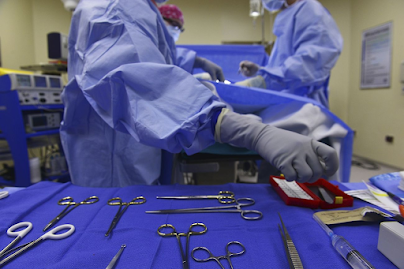Surgeons can determine life or death, and they may struggle to maintain their integrity when faced with significant financial temptations. For me, when confronted with this issue, if I were to accept a bribe when confronted with this issue, I would be causing someone who could have received an organ to lose their life, as well as inflicting harm on their family. Moreover, setting aside any professional ethical issues, such behavior goes against my conscience. My thoughts might never rest, day or night. Therefore, I would firmly and decisively say no to such actions without a second thought.
First, let’s discuss the background of my ethical foundations. I come from China, where bribing doctors is a common practice. Many people have become wealthy through these means, and some of my relatives and friends as medical representatives still bribe doctors to get their drugs more frequently prescribed. I disdain such behavior because I hold unique cultural and contextual considerations. The Chinese government persecuted my family. My mother’s family once suffered from a government-organized raid, during which all their property, status, and physical well-being were plundered. My family taught me from a young age to oppose tyrannical authority that annihilates humanity and its thoroughly corrupt political system from top to bottom. Although I could not freely express these views in China, these beliefs have taken root and grown in my heart. My background primarily shapes my true personal moral beliefs.
Secondly, when I encounter a moral dilemma, I use fairness to evaluate whether I should engage in the action, considering if my decision would cause someone else to lose what they rightfully deserve. For instance, in a real-life scenario, if I am in a queue and there is someone who urgently needs to move ahead, I would let them go in front of me. However, this would be unfair to the rest of the people in line behind me. Therefore, I would move myself to the end of the queue to ensure fairness for everyone. The practice of doctors accepting bribes, leading to someone else losing their rightful place, clearly contradicts my “principle of fairness.” Although perfect fairness does not exist in the world, I strive to adhere to my standards.
Regarding ethical theories, my thought process and decision style align more closely with deontology. Within the realm of “Patient-Centered Deontological Theories,” there’s a classic transplantation dilemma where organs from one healthy individual are forcibly transplanted into five patients. Although trading one life for five may seem beneficial, it contradicts deontological ethics, which emphasize the nature of the act itself rather than the outcome (Alexander). Even though the party that paid the bribe received an organ, the doctor compromised the treatment of patients who should have been prioritized, infringing upon their right to receive care or dignity. Therefore, respecting others and treating everyone fairly are the moral principles I adhere to.
When it comes to balancing values and responsibilities to others, although I am someone who strictly adheres to professional ethics and company policies, I once had an experience where, at a company, other employees were laid off in violation of labor laws without any compensation and were threatened to deter them from appealing. Witnessing their plight, I wanted to speak up for them or offer advice, but I knew that helping them might lead to me also losing my job. At that moment, I began weighing my options and concluded that I had to speak out against the injustice, realizing that if the company could treat them this way today, I could face the same treatment tomorrow. Consequently, I voiced their concerns, helped them secure the severance pay they were entitled to, and did not face any unfair treatment from the company after that. Regardless of the personal consequences, I was willing to assist the victims based on a moral obligation, ultimately adhering to the principles of deontology. When I witness others being treated unfairly, I strive to assist them. In this real-life example, although I risked losing my job by helping others, I chose to confront the unfair practices and advocate for others to receive what they rightfully deserved.
Lastly, regarding ethics in professions, many high-tech companies in China, like Hikvision or SenseTime, offer attractive salaries to developers for projects that include surveillance and persecuting Uighurs for the Chinese government. Although I had the opportunity and capability to work for these companies, I chose to distance myself, unwilling to partake in human rights abuses and genocide.
In summary, I am studying the Bible but haven’t fully embraced Christianity yet, my actions and decisions in ethical dilemmas are guided by my “principle of fairness.” I oppose injustice and actively work to address it, avoiding subjective biases in determining fairness. My demand for a more equitable society compels me to hold myself to higher standards, ensuring I have the moral ground to critique existing social injustices.
Works Cited
Alexander, Larry, and Michael Moore. “Deontological Ethics.” Stanford Encyclopedia of Philosophy, Metaphysics Research Lab, Stanford University, 2016, plato.stanford.edu/entries/ethics-deontological/#PatCenDeoThe.
Fair Use Disclaimer


Comments
Post a Comment